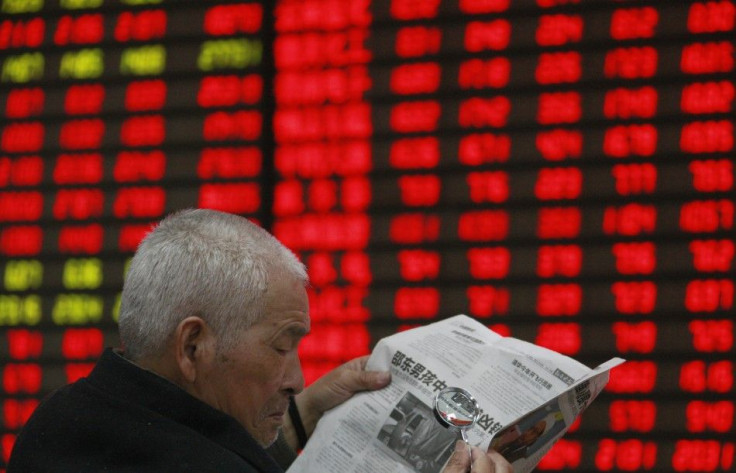Weekly Roundup: Asian Markets Fall On Weak China Data And Euro Zone Debt Concerns

Asian markets fell in the week on increasing concerns about China's economic slowdown and Greece exiting the euro zone.
Hong Kong's Hang Seng declined 1.3 percent by week's end, which is the third continuous weekly loss, as market sentiment was down due to investors' concerns about China's economic slowdown. There were media reports that China's biggest banks will miss the loan target for the first time in seven years.
There have been fears of a hard landing after data showed earlier last month that China's economy slowed down to 8.1 percent in the first quarter, down from 8.9 percent in the fourth quarter of 2011. Also, the preliminary HSBC Flash Purchasing Managers Index (PMI) reported that China's manufacturing activity worsened in May compared to April and continued to contract for the seventh straight month. The preliminary reading of the PMI, a measure of nationwide manufacturing activity, fell to 48.7 in May compared to 49.3 in April.
Another factor that dragged down Asian market sentiment was the inability of European leaders to announce any major progress in tackling the debt crisis looming over the euro zone and preventing Greece from leaving the euro zone.
Japan's Nikkei Stock Average lost 0.4 percent in the week, resulting in eight continuous weekly declines. Japanese market sentiment is expected to continue to be negative until the next election in Greece. There are concerns that parties opposing the austerity measures in Greece will gain a majority when the country holds fresh elections on June 17. If that happens, Greece will not receive a new bailout package, which would cause its banking system to collapse, leading to its exit from the euro zone.
Meanwhile, South Korea's KOSPI reported a weekly gain of 2.3 percent, ending its two-week decline. However, the market is expected to remain volatile as long as fears of Greece exiting the euro zone persist.
Also India's BSE Sensex ended the week with a marginal gain of 0.4 percent, but the market continued to be highly volatile as the investor sentiment there was dragged down by the fall of the Indian rupee and euro zone concerns.
The rupee, which touched an all-time low of 56.38 against the dollar in the week, has been badly affected by macro-economic issues faced by the country. Most importantly, the current account deficit widened to 4.3 percent of gross domestic product last year, and the nation's fiscal deficit is 5.9 percent.
Analysts are of the opinion that the Indian government's ability to implement policies has weakened due to its slow and complex decision-making process.
© Copyright IBTimes 2024. All rights reserved.











